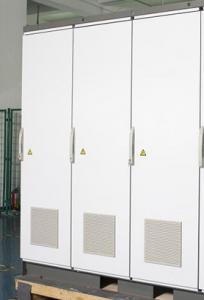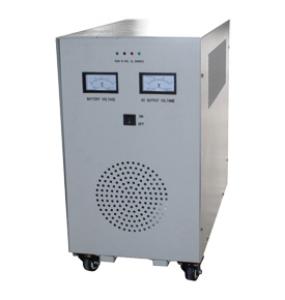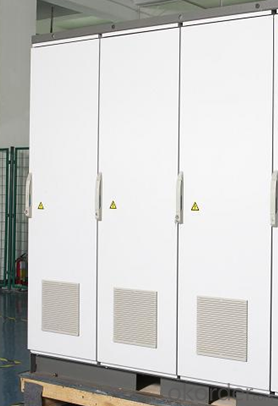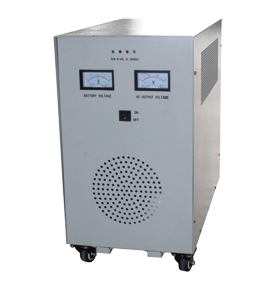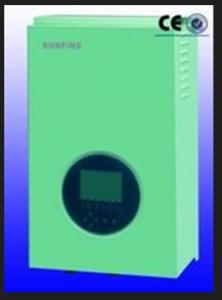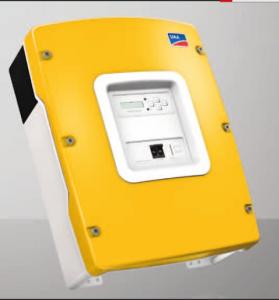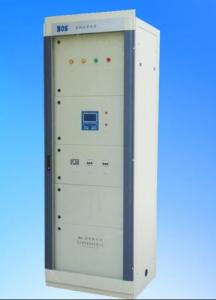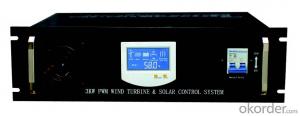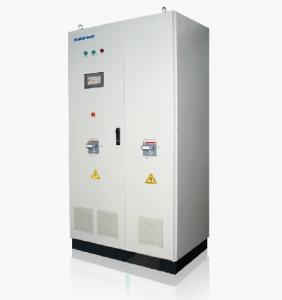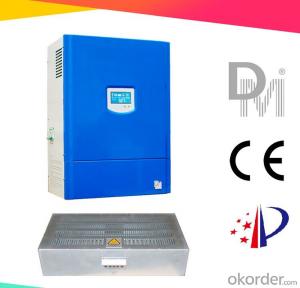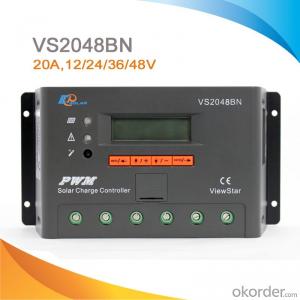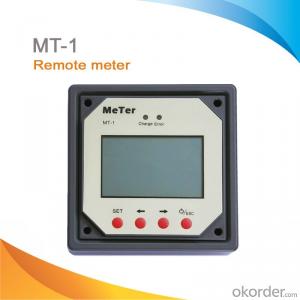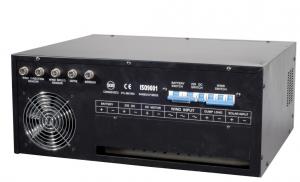Buy Solar Controllers:PV Off-Grid Inverter and Controller Hybrid GNS-0.3KB
OKorder Service Pledge
OKorder Financial Service
You Might Also Like
Description;
CNBMSOLAR is a world-leading and Vertical integrated manufacturer of high-performance with Silicon,
Wafer, Cells, Modules, which convert sunlight into electricity for residential, commercial, and utility-scale
power generation.
The capacity of CNBMSOLAR is reach to 1GW, and make sure each year our shipment capacity is more
Than 700-800MWs, at the same time, we have set up the largest solar power station with our partner
in Ukraine.
CNBM is a Quality + Service oriented company with“Excellence at Each Step” approach, composed of
the finest components from TUV and IEC-certified partners around the world, CNBM modules consistently
undergo a variety of trials at the company’s Test & Development Centre, ensuring peak performance
capabilities. The company is committed to develop and provide the world with clean and renewable energy
to ease the energy shortages as well as human kind’s impact on the environment.
Data:
Technical specifications |
| |
Model | GNS-0.3K20B | |
Rated Capacity(KVA) | 0.5 | |
DC Input | Rated Voltage(VDC) | 12 |
Low Voltage(VDC) | 10.8 | |
Low Voltage Resume (VDC) | 13.2 | |
Load Overvoltage(VDC) | 17 | |
Overvoltage Resume(VDC) | 16.5 | |
PV Input | Rated Current on charging(A) | 20 |
Charge Loop | 1 | |
Overcharge protection(VDC) | 14.4 | |
Overcharge Resumption(VDC) | 14.2 | |
Anti lightning | varistor lighting protection | |
Grid input | No grid transfer function | |
Rated capacity | Output Waveform | sinewave |
Overload ability | 120% 1min | |
Output voltage(VAC) | 220±3% | |
Output frequency(Hz) | 50±0.1% | |
THD | ≤3℅(THD) | |
Dynamic Response(0~100%) | 5% | |
Efficiency | ≥80% | |
Continous running time | Continuous operation | |
Display | LCD/LED/Meter | |
Protection | Overcharge, overdischarge, overload, short circuit, reverse polarity, internal overheated protections,etc | |
Protection class | IP20 | |
Environment | Noisy | ≤50(dB/m) |
Operating temperature range | -10~+50(℃) | |
Storage temperature range | -25~+55(℃) | |
Operating humidity | 0~95%(non-condensing) | |
Max.altitude(above sea level) | ≤5000(m) | |
Product Dimension (mm) | 520*273*451 | |
Weight(kg) | 80kg | |
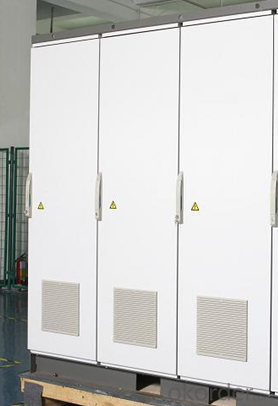
FAQ:Could you introduce more about CNBM
CNBM Group is short for China National Building Materials Group Corporation, which is established in 1984 with approval from the State Council
CNBM Group is the largest comprehensive building materials industry group in China
The Group has a total asset of over RMB 360 billion, more than 180,000 employees and 17 subsidiaries
- Q: What are the main components of a solar controller?
- Solar controllers consist of a charge controller, a battery monitor, and a temperature sensor as their primary components. The charge controller's role is to regulate the voltage and current from the solar panels, ensuring the batteries are charged efficiently and safely. It prevents the batteries from overcharging or over-discharging, which can cause damage and reduce their lifespan. Modern charge controllers often incorporate maximum power point tracking (MPPT) technology, which continuously adjusts the voltage and current to match the batteries' requirements, optimizing the power output from the solar panels. The battery monitor is used to measure and display the state of charge (SOC) and voltage of the batteries. This information is vital for users to determine the remaining capacity of their batteries and estimate how long they can power their devices or systems. Advanced battery monitors may also provide additional data such as battery temperature, aiding in the effective management of the charging process. The temperature sensor is employed to monitor the temperature of the batteries. Elevated temperatures can adversely affect battery performance and lifespan. By using the temperature sensor, the solar controller can adjust the charging parameters based on the battery temperature, ensuring optimal charging and protection from excessive heat. In addition to these primary components, some solar controllers may offer features like LCD displays for convenient monitoring, USB ports for charging small electronic devices, and communication ports for data logging or remote monitoring. The specific components and features of a solar controller can vary depending on the model and manufacturer, but the charge controller, battery monitor, and temperature sensor are essential components that guarantee the efficient and safe operation of solar systems.
- Q: Can a solar controller be used with a solar-powered irrigation pump?
- Yes, a solar controller can be used with a solar-powered irrigation pump. The solar controller helps regulate and optimize the power generated by the solar panels to efficiently supply power to the irrigation pump, ensuring that it operates effectively and maximizes the use of solar energy.
- Q: Can a solar controller be used with solar panels that are connected to a solar telecommunications system?
- Yes, a solar controller can be used with solar panels that are connected to a solar telecommunications system. A solar controller, also known as a charge controller, is an essential component in any solar power system. Its main function is to regulate the flow of electricity from the solar panels to the battery bank, ensuring that the batteries are charged efficiently and safely. In the case of a solar telecommunications system, where solar panels are used to power communication devices, a solar controller is even more important. It helps to protect the batteries from overcharging, which can damage the batteries and reduce their lifespan. Additionally, a solar controller can also prevent reverse current flow from the batteries to the solar panels during periods of low or no sunlight, which can also damage the panels. By using a solar controller, the solar panels in a telecommunications system can operate at their maximum efficiency, while the batteries are charged and maintained properly. This not only ensures reliable power supply for the telecommunication equipment but also extends the lifespan of the entire system. Therefore, it is highly recommended to use a solar controller in conjunction with solar panels that are connected to a solar telecommunications system to optimize the performance and longevity of the system.
- Q: How do I protect a solar controller from lightning strikes?
- To protect a solar controller from lightning strikes, it is recommended to use surge protectors or lightning arresters specifically designed for solar power systems. These devices help divert excessive voltage caused by lightning strikes away from the controller, preventing damage to the equipment. Additionally, grounding the solar system properly and ensuring all electrical connections are secure can further protect the controller from lightning-induced power surges.
- Q: Are there any safety features in solar controllers?
- Yes, there are several safety features in solar controllers. Some common safety features include overcharge protection, over-discharge protection, short-circuit protection, reverse polarity protection, and temperature compensation. These features ensure the safe and efficient operation of solar controllers and help protect the connected batteries and solar panels from damage.
- Q: Can a solar controller be used with a generator?
- Yes, a solar controller can be used with a generator. The solar controller regulates the charging of batteries from solar panels, and it can also regulate the charging from a generator. By connecting the generator's output to the input terminals of the solar controller, it can effectively manage the charging process and ensure the batteries are charged efficiently.
- Q: Can a solar controller be used in hybrid solar systems?
- Hybrid solar systems can indeed utilize a solar controller. This particular device, also referred to as a charge controller, plays a vital role within any solar power system by effectively regulating the electric flow between the solar panels and the batteries. Even in the case of a hybrid solar system, where solar power is combined with alternative energy sources like wind or a generator, a solar controller remains essential for managing battery charging and discharging. By efficiently charging the batteries from the solar panels and preventing overcharging or over-discharging, the controller effectively prolongs battery life. Furthermore, the solar controller can offer monitoring and data logging features, enabling users to monitor the performance of their hybrid solar system. Ultimately, the solar controller serves as a crucial component within a hybrid solar system, guaranteeing optimal energy management and system efficiency.
- Q: Can a solar controller be used with a solar water pumping system?
- Yes, a solar controller can be used with a solar water pumping system. A solar controller is an essential component of a solar water pumping system as it helps regulate the flow of electricity from the solar panels to the water pump. It ensures that the pump receives the right amount of power to operate efficiently and protects it from any potential damage due to overvoltage or overcurrent. The solar controller also helps optimize the performance of the system by tracking the maximum power point of the solar panels and adjusting the voltage and current accordingly. Overall, a solar controller is crucial for the proper functioning and longevity of a solar water pumping system.
- Q: How do I ensure compliance with local regulations when installing a solar controller?
- To ensure compliance with local regulations when installing a solar controller, it is important to research and familiarize yourself with the specific regulations and codes that apply to your location. This may involve consulting local building codes, electrical codes, and any specific ordinances or permits required for solar installations. Additionally, it is advisable to engage a licensed and experienced solar professional who is well-versed in local regulations. They can ensure that the installation is carried out in accordance with all applicable rules, codes, and safety standards, minimizing any potential compliance issues.
- Q: Can a solar controller be used with solar-powered indoor retail facilities?
- Yes, a solar controller can be used with solar-powered indoor retail facilities. Solar controllers help regulate and optimize the charging process of the batteries that store the solar energy. In an indoor retail facility, solar panels can be installed on the roof or in areas with access to sunlight, and the solar controller ensures that the generated energy is efficiently stored and utilized to power the facility's lighting, equipment, and other electrical needs.
Send your message to us
Buy Solar Controllers:PV Off-Grid Inverter and Controller Hybrid GNS-0.3KB
OKorder Service Pledge
OKorder Financial Service
Similar products
Hot products
Hot Searches
Related keywords
